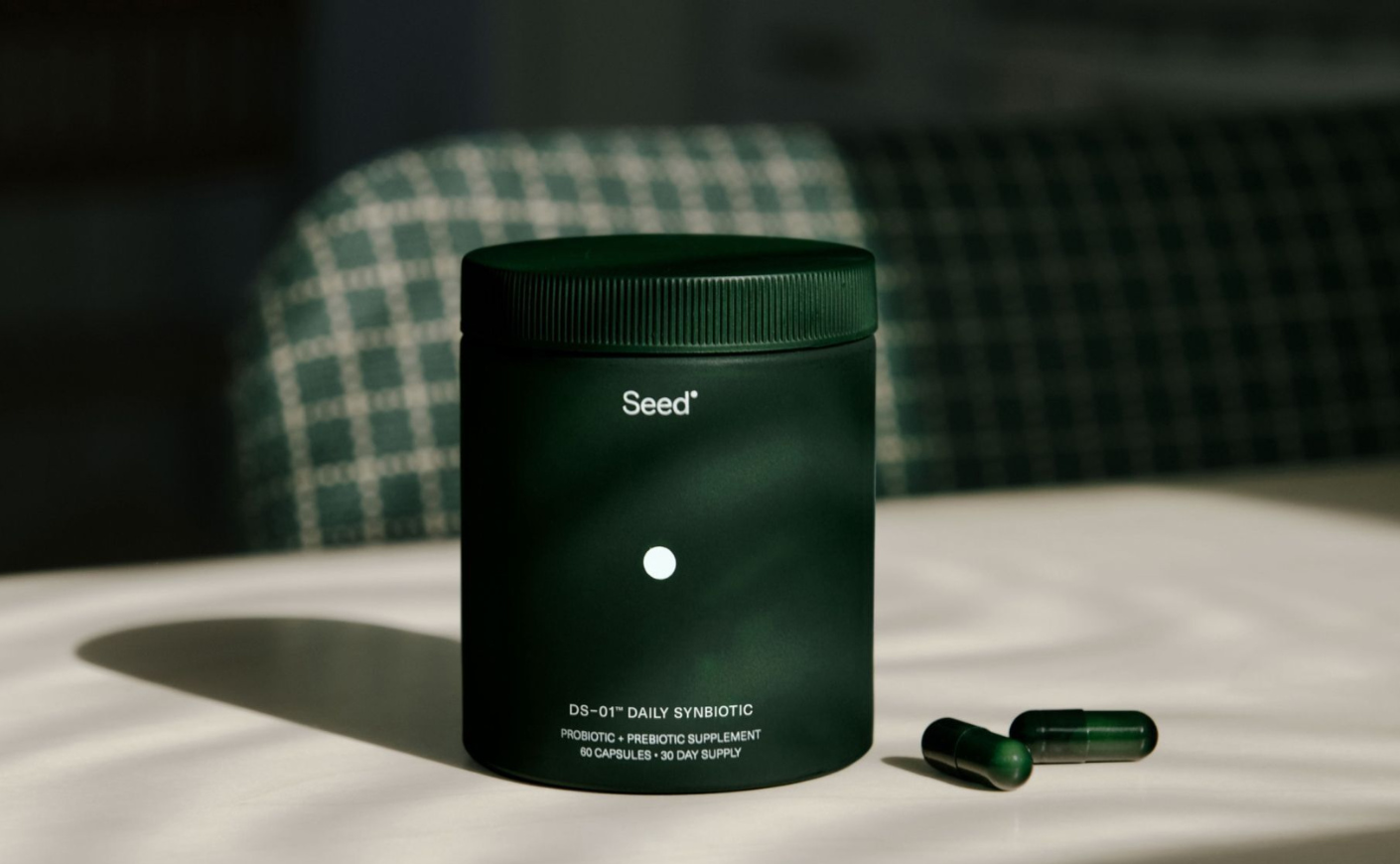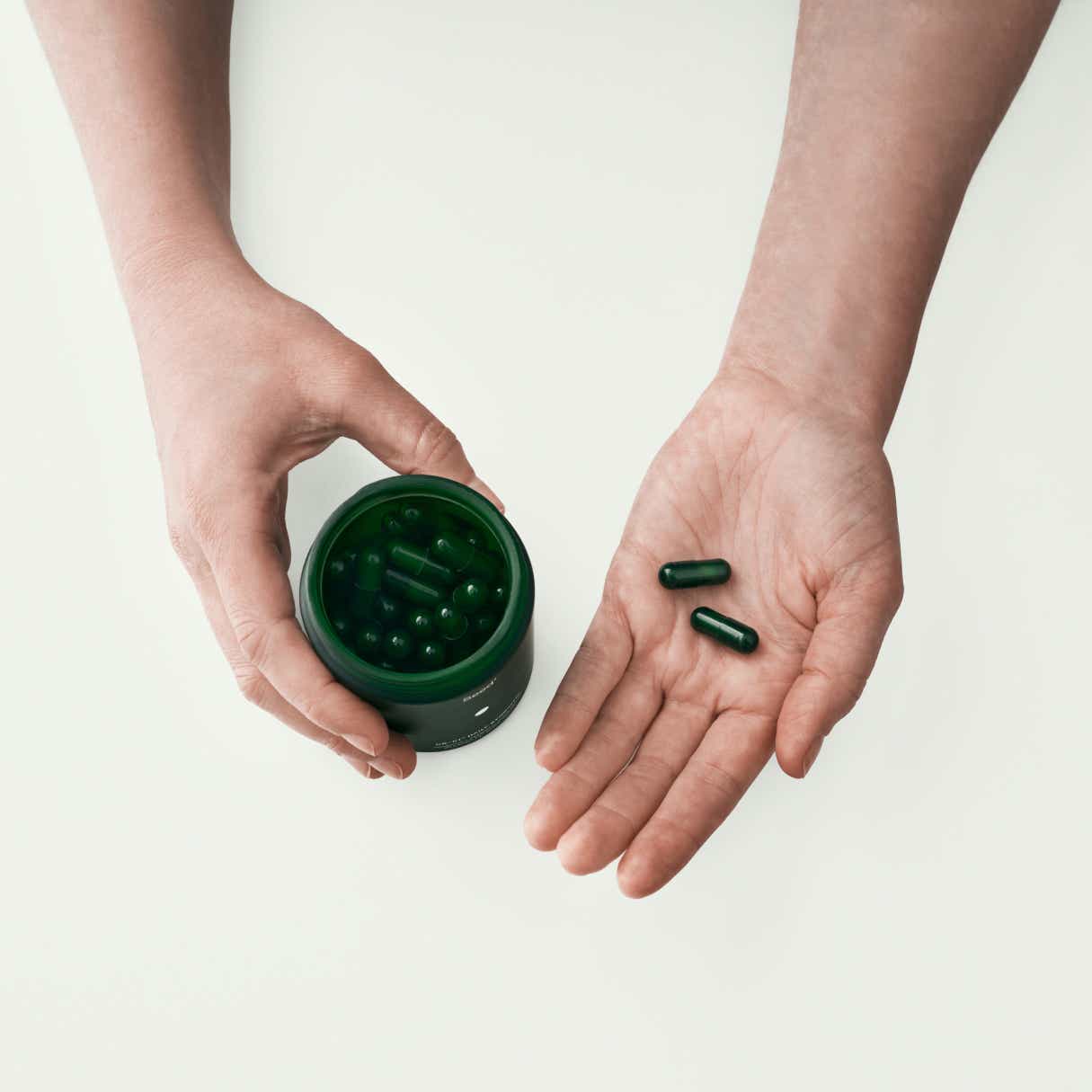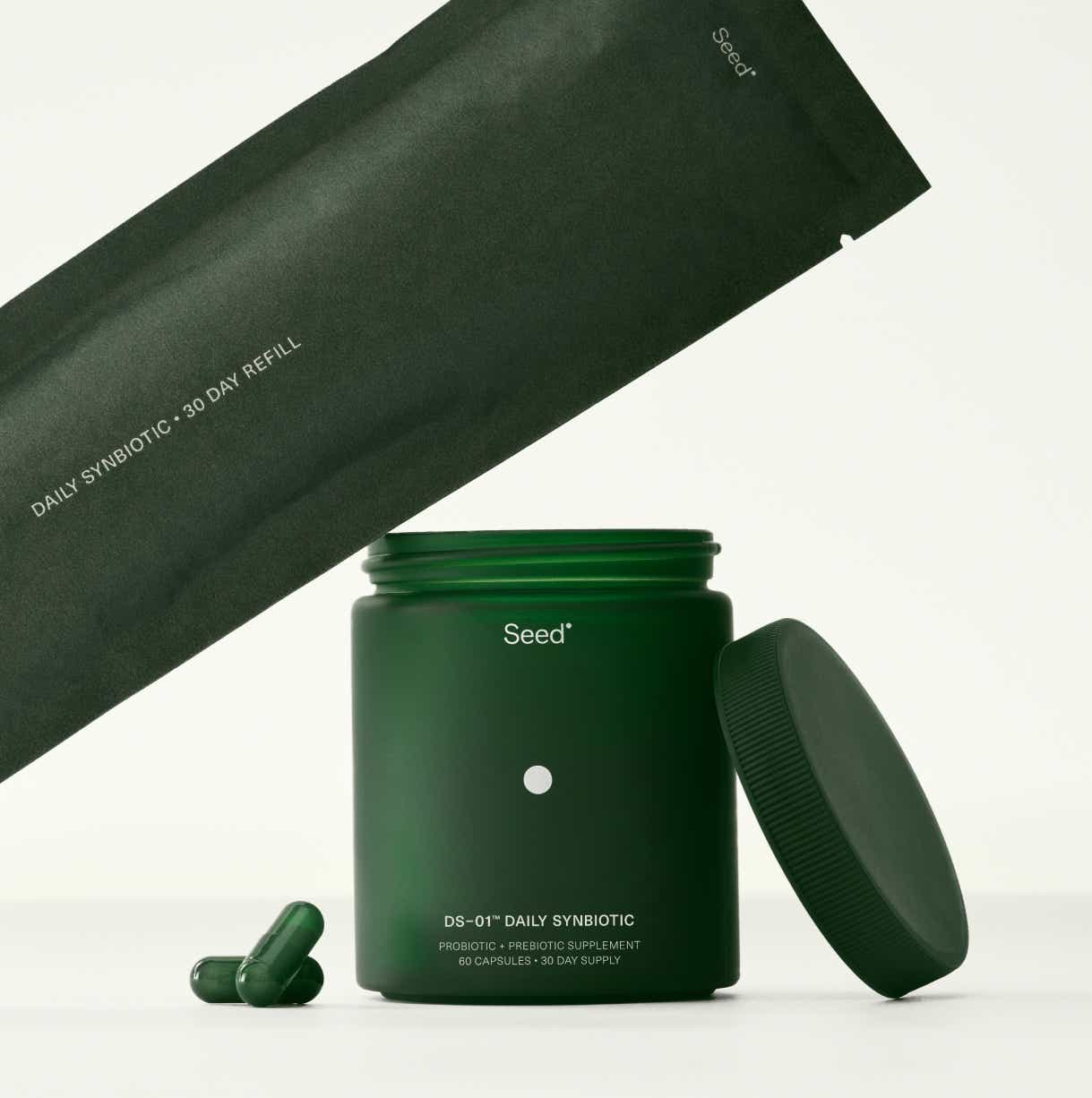Because two is better than one.
Over the past few years, we’ve heard a lot about probiotics and why they can have a positive impact on our overall well-being. As these probiotics travel through the gastrointestinal tract, they interact with immune cells, gut cells, dietary nutrients, and existing bacteria to trigger local and systemic benefits.
Recently, however, we’ve started seeing new terms crop up on drinks, foods, and supplements that seem related to the wide world of probiotics but are a bit different, such as prebiotics and synbiotics.
While you’d be excused for having confusion about these new terms (and the benefits of probiotics themselves, for that matter), there are important differences to be aware of. To clear things up, we spoke with the experts at Seed, a microbiome science company developing clinically validated synbiotics. Below, Ara Katz, co-founder and co-CEO at Seed, explains what synbiotics are, and why you should consider adding one to your routine.
What’s the difference between probiotics, prebiotics, and synbiotics?
First, Katz says, we should start with the definitions:
Scientifically speaking, probiotics are live microorganisms (often bacteria) studied in specific dosages to provide a specific benefit for the host (you). Precision is key here: Each species of bacteria encompasses hundreds or thousands of strains, which can have different specific effects on the human body.
Prebiotics, on the other hand, are non-living compounds used by microbes in some way that are beneficial to the host. In the simplest terms, prebiotics are a “food” that encourages the growth or activity of beneficial bacteria.
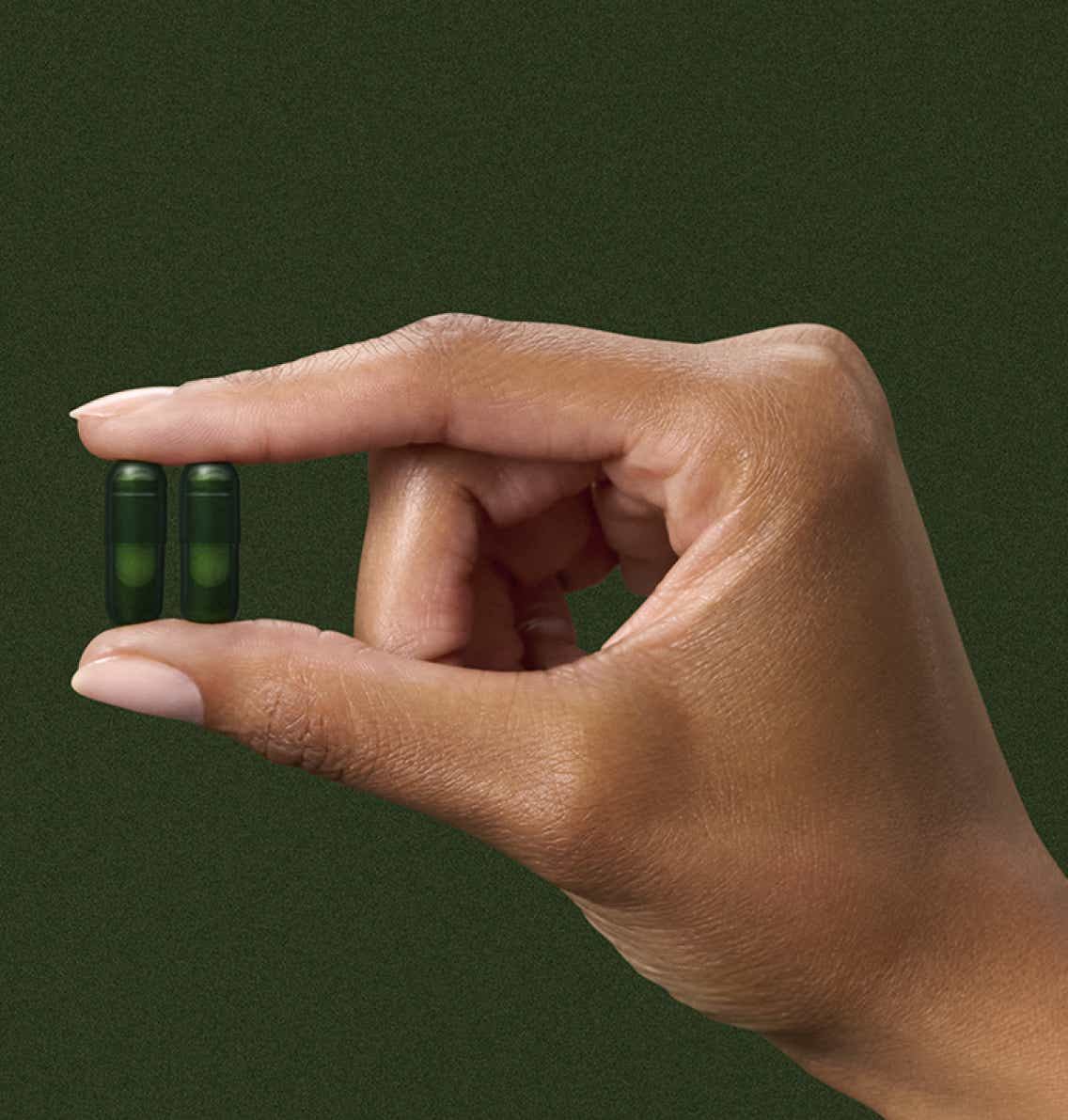
A synbiotic is a probiotic plus a prebiotic. Synbiotics may work synergistically, meaning the prebiotic in a formulation is used by the probiotics in that formulation. Or they can be complementary, meaning the prebiotic is used by the microbes that already reside in your gut. Both types of synbiotics have been shown to impart health benefits in specific formulations.
“With a synbiotic,” Katz says, “you have the opportunity to ‘boost’ the growth of beneficial bacteria with a clinically studied prebiotic, alongside specific strains of probiotics that also have demonstrated health benefits. This two-in-one approach unlocks additional health benefits a probiotic or prebiotic may not offer on its own.”
Can you get enough probiotics through diet alone?
“The word ‘probiotic’ is often used loosely to describe anything that contains microbes,” Katz says, “but that’s not scientifically accurate.”
For example, kimchi, yogurt, and kombucha are fermented foods but they don’t necessarily meet the rigorous scientific definition of a “probiotic.”
“While these foods might contain beneficial bacteria, they haven’t been subjected to controlled studies in specific dosages in humans, to confirm their health effects,” Katz tells us. “Probiotics need to have a demonstrated health benefit from a specific dosage of well-defined live microorganisms.”
For those reasons, the terms “fermented food” and “probiotics” can’t always be used interchangeably (though labels may suggest otherwise).
What about prebiotics?
While there are many foods rich in prebiotics — garlic, onion, asparagus, apples, and certain grains, to name a few — it can be challenging to consume a clinically effective amount of prebiotics via your regular meals, Katz says.
“The concentration of prebiotics in food is highly variable, and you’ll likely need to consume a lot of something to reap the prebiotic benefits,” Katz tells us. “That’s where supplements come in.”
According to Katz, the prebiotic included in Seed’s DS-01 Daily Synbiotic delivers concentrated polyphenols, which are transformed by gut microbes into antioxidants called urolithins that help prevent damage to your cells from internal and external stressors. It’s also been clinically validated to support healthy skin complexion and reduce visible signs of aging.
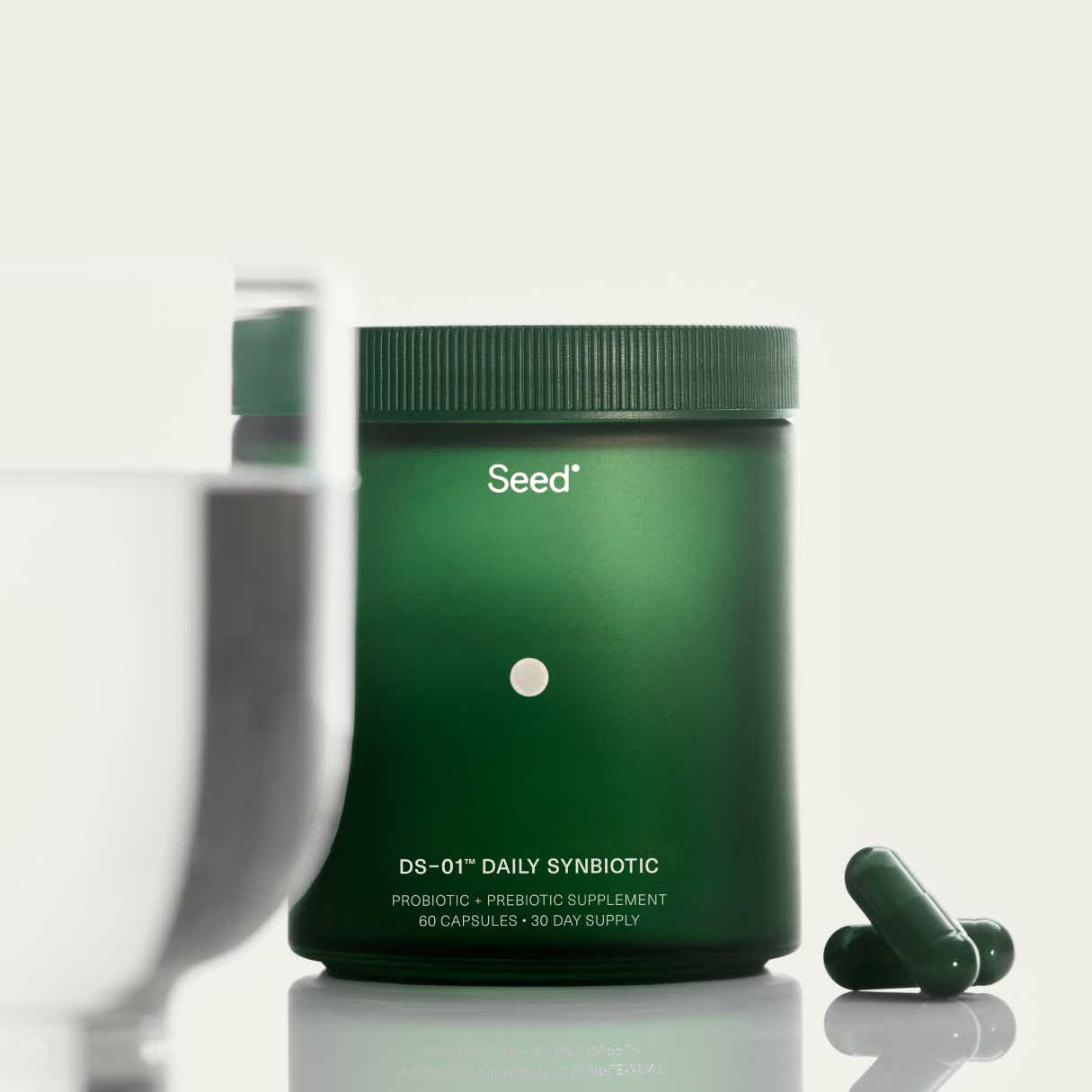
Why should you take a synbiotic?
“When it comes to evaluating ‘-biotic’ products,” Katz tells us, “it’s important to know what health benefit you’re seeking, and to ensure the product you choose has research to substantiate the product’s claims. Not all products are created equal.”
For example, the probiotic strains and the prebiotic in Seed’s DS-01 Daily Synbiotic have been analyzed in over 20 mechanistic (how a strain works) and human (what a strain does in the human body) studies combined. They’ve demonstrated benefits like digestive regularity, ease of bloating, gut-barrier integrity, gut immune function, skin health, heart health, and micronutrient synthesis. Not every company conducts the same level of research and product testing throughout the manufacturing process.
“While the onus of accountability should be on the company rather than the consumer, this isn’t yet the norm,” Katz says. “That’s why I recommend paying attention to companies’ values, their research, and how they market. See whether you can identify integrity in how they speak and educate, and whether what they’re saying is too good to be true. In other words, trust your gut — pun intended.”







